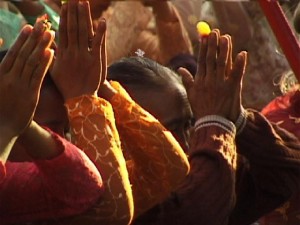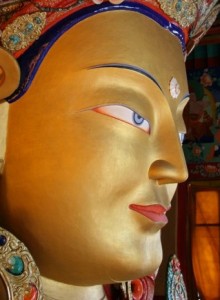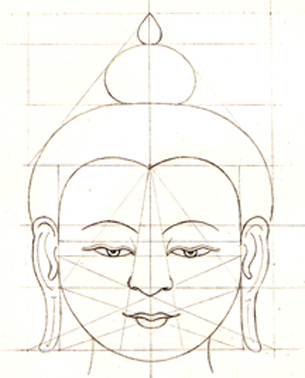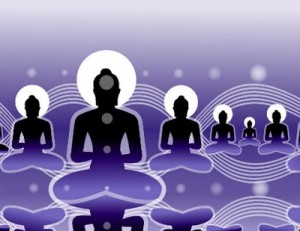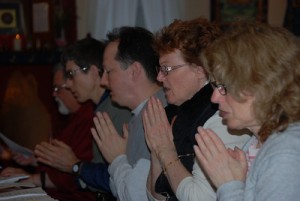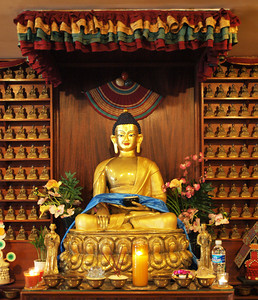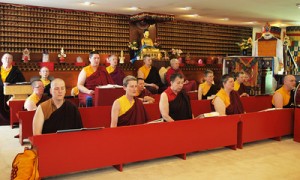An excerpt from a teaching by Jetsunma Ahkon Lhamo from the Vow of Love series available on Amazon
One of the most important and central thoughts in Buddhist philosophy is the idea of compassion. The Buddha taught that we must cultivate our lives as a vehicle to be of benefit to all sentient beings. It’s good that you’re a good mother, and it’s good that you’re a good friend, but we can’t limit ourselves to a small, familiar circle. We have to go on and on increasing our compassionate activity, our influence and our determination until we attain a level of kindness or compassion that supersedes what we believe is reasonable. We can’t stop even with our nation. We can’t think that we only want to help Americans. Nor can we stop with our world. We can’t think that we only want to help humans and animals, which are the ones that we can see. We have to think, according to the Buddha, that we wish to be of benefit to all sentient beings.
A sentient being is one who has sensory feeling or the development of that kind of discriminating consciousness. According to the Buddha’s teachings, there are six realms of cyclic existence, and there are sentient beings in all of these realms. The human realm and the animal realm are visible to us. This is living proof that at least some of the Buddha’s teaching is right. We see human beings and we see animals; therefore, we know that they exist. But according to the Buddha’s teaching, there are also non-physical beings and different kinds of beings that must be considered if we are to truly develop the mind of compassion.
Limiting ourselves to an identity such as,”I am a woman,” or “I am a man,” or “I am an American,” or “I am a Russian,” or even “I am a citizen of planet earth,” is not the way of the Buddha. Instead, we should think that on every particle we can see, and all those that we cannot see, and in every inch of space, there are millions and millions of sentient beings. And space goes on forever. If we intend to develop the mind of kindness, it must extend to all sentient beings equal to the limits of space. Space has no limits and there are limitless beings, seen and unseen. Therefore, we must extend the mind of compassion to beings far beyond those we can conceive of with our brains. That is an awesome thought. How can we really do that? We think that must be impossible. How can we be directly concerned with somebody we can’t see? How can we really care about something that might be infinitesimally small, like bacteria? Or a sentient being that may be as large as a galaxy? How can we seriously consider we must be kind to all sentient beings in that way?
When you develop the mind of compassion, you have to be careful how you develop that mind. If you examine yourself profoundly and honestly – and you have to be willing to be very honest with yourself – you may find that your goal is not really to benefit all sentient beings, but to be a kind person. There are worlds and universes of difference between these two goals. One is selfless: you truly wish to be of benefit to all sentient beings. The other is heading in the right direction, but ultimately it is not selfless because you wish that you could be a kind person. I hope that you can hear the difference between these two ideas. There are worlds of difference between them.
© Jetsunma Ahkön Lhamo

